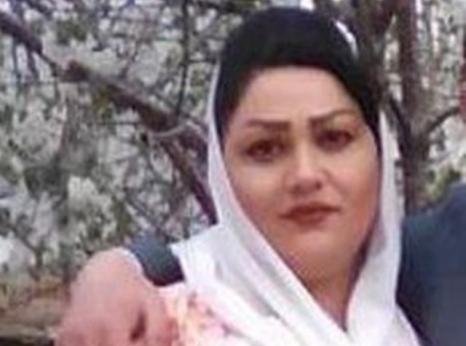Iran: Mother With Baby Denied Proper Care In Jail

Following So’ada Khadirzadeh’s arbitrary arrest, when she was about six weeks pregnant, on 14 October 2021, she was subjected to an enforced disappearance for 25 days whereby her family was denied information about her fate and whereabouts until she was transferred to Urumieh prison on 8 November 2021. In December 2021, prison doctors issued a medical note confirming she required specialized medical care outside of prison, but prosecution authorities, together with Ministry of Intelligence agents, barred her access to such healthcare. On 26 April 2022, So’ada Khadirzadeh began a 12-day hunger strike in protest at her continued detention and being denied the specialized health care she required. During this time, she also refused all medication. In a leaked audio message recorded inside the prison and made public on 27 April 2022 during her hunger strike, So’ada Khadirzadeh recounted that Ministry of Intelligence agents forcibly disappeared her following her arrest and subjected her to intense interrogations, verbally abused her and “even made immoral suggestions to me”. In the same audio message, she also referred to herself as being held “hostage”, alluding to Ministry of Intelligence agents holding her to compel her husband to return to Iran. So’ada Khadirzadeh subsequently agreed to stop her hunger strike after prison officials said they would release her on bail, though this never took place. According to an informed source, doctors from the Legal Medical Organization of Iran, a state forensic body, examined So’ada Khadirzadeh after her hunger-strike and held that she should not remain jailed during the remaining period of pregnancy. Their medical advice was dismissed. In early June 2022, authorities set her bail to over thirty billion rials (GBP£70,000), which neither she nor her family could afford. Since giving birth, she has relied on other prisoners in the ward to help care and nurse her child. Prison officials failed to provide adequate accommodation to So’ada Khadirzadeh and her child, prompting another prisoner to volunteer her bed, which was more suited for mother and newborn. So’ada Khadirzadeh’s is also being denied nutrient food, including for nursing her child, and has not been permitted to accompany her child to health examinations outside of prison. Rule 48 for the Treatment of Women Prisoners and Non-custodial Measures for Women Offenders (the Bangkok Rules), states that pregnant or breastfeeding women prisoners must be provided with an adequate diet organized and monitored by a qualified health practitioner, and a healthy environment for both mother and child.
State-affiliated media referred to a man killed in early October 2021as a “martyr” and claimed the Kurdish Democratic Party of Iran, an armed Kurdish opposition group, was responsible. Human rights activists abroad identified him as a Ministry of Intelligence agent in Piranshahr.
Amnesty International has documented a pattern of systematic fair trial rights violations in Iran, beginning from the time of arrest right up until when defendants stand trial. Detainees are often arrested without warrants and held in prolonged solitary confinement in undisclosed locations without access to their families. Individuals detained, investigated and prosecuted, especially those arrested on politically motivated charges, are subjected to grossly unfair judicial proceedings. Prosecution authorities and interrogators belonging to security and intelligence bodies, including the Ministry of Intelligence, systematically deny detainees their right to access a lawyer from the time of arrest during the investigation phase, and at times, even beyond. Torture and other ill-treatment are widespread and systematic, especially during interrogations. Prison and prosecution authorities have also deliberately denied prisoners of conscience and other prisoners held for politically motivated reasons access to adequate health care, in many cases as an intentional act of cruelty intended to intimidate and punish them.
Ethnic minorities, including Ahwazi Arabs, Azerbaijani Turks, Baluchis, Kurds and Turkmen face entrenched discrimination in Iran which curtails their access to education, employment, adequate housing and political office. Despite ongoing calls for linguistic diversity, Persian is the sole language of instruction in primary and secondary education. The Iranian authorities also refuse to cease and provide accountability for the unlawful killing of scores of unarmed Kurdish cross-border couriers (kulbars) between the Kurdistan regions of Iran and Iraq.
Under international law, detention pending trial is a preventive measure aimed at averting further harm or obstruction of justice, rather than a punishment. It must not be used for improper purposes or constitute an abuse of power and must not last any longer than is necessary with ongoing examinations into the continued necessity of keeping an individual in detention. Additionally, under Rule 64 of the Bangkok Rules, non-custodial sentences are preferred for pregnant women and women with dependent children.